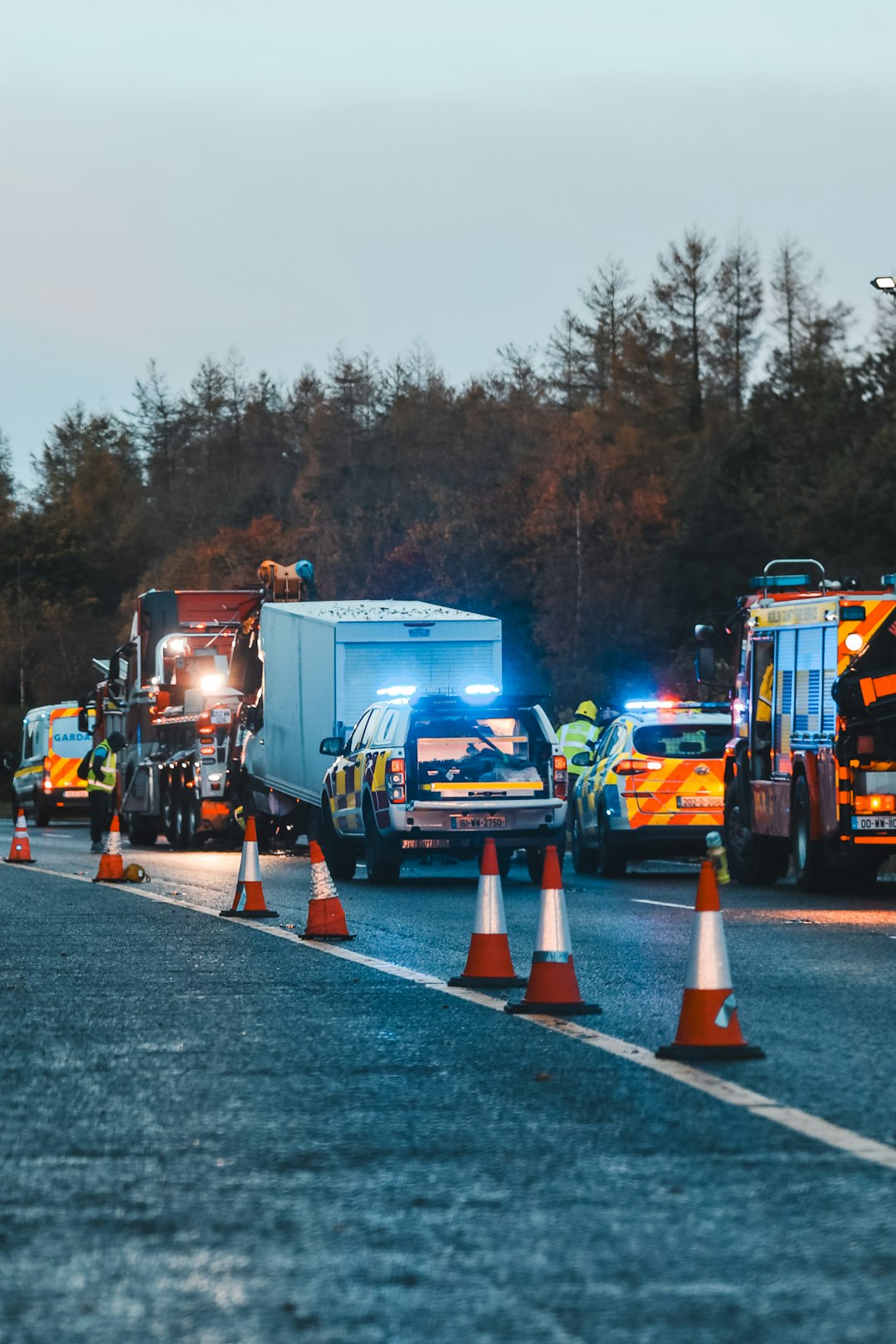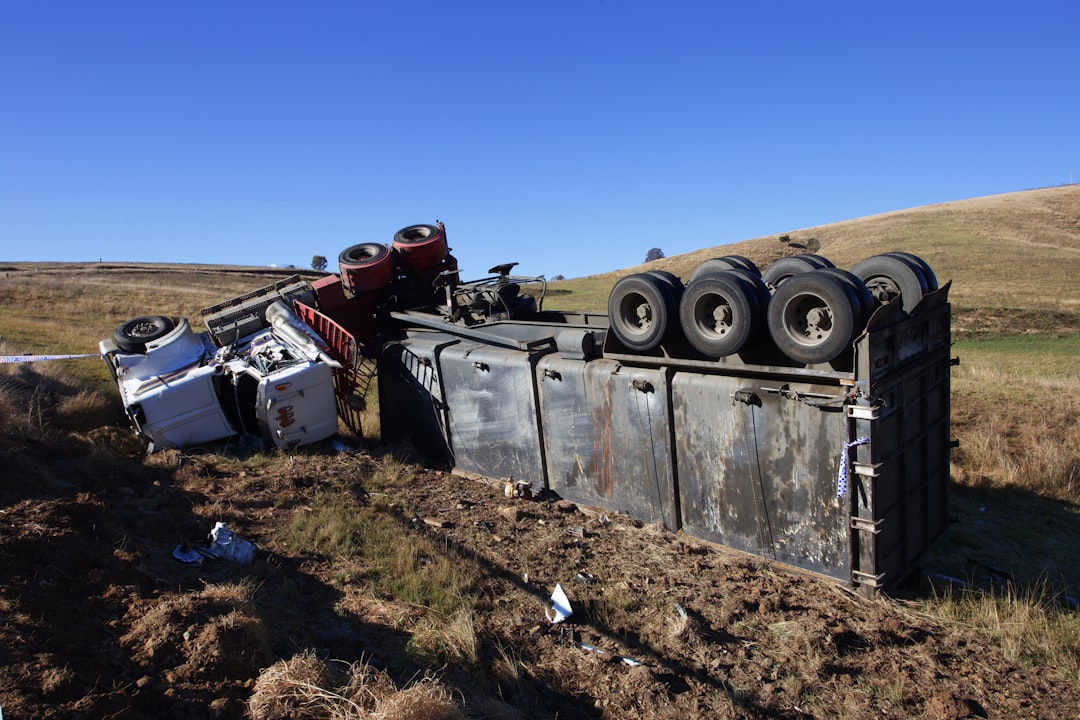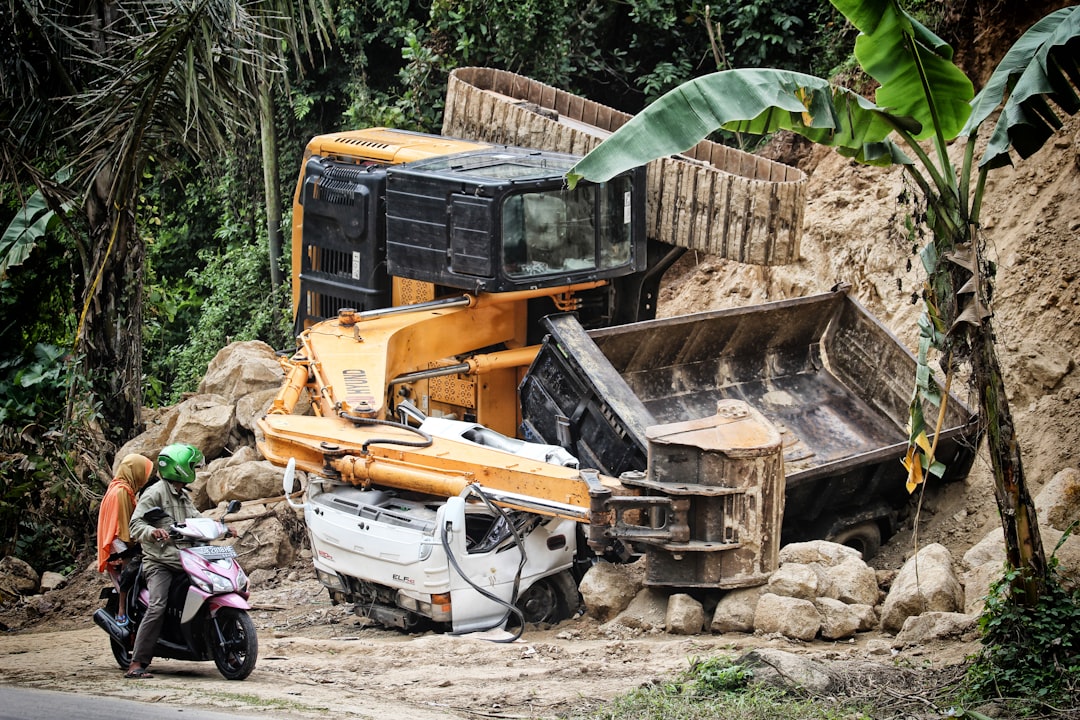

Truck accidents in California are unfortunately a common occurrence, posing significant risks to both truck drivers and other road users. Understanding the common causes of these accidents is crucial for anyone involved in the trucking industry, as well as for those seeking legal help after an accident. Here are some of the primary factors contributing to truck accidents in California.
One of the most prevalent causes is driver fatigue. Truck drivers often work long hours to meet tight delivery schedules, which can lead to exhaustion. Federal regulations mandate rest periods for drivers, but these rules are sometimes ignored or inadequately enforced. Fatigued driving significantly impairs reaction times and decision-making abilities, making it one of the leading causes of truck-related collisions.
Speeding is another critical factor. The sheer size and weight of trucks make them much harder to stop than regular vehicles. When a truck driver exceeds the speed limit, they reduce their ability to react promptly to changing traffic conditions. This can result in devastating accidents, especially on busy highways like Interstate 5 or Highway 99.
Mechanical failures also play a significant role in truck accidents. Regular maintenance is essential for keeping trucks safe on the road; however, not all trucking companies adhere strictly to maintenance schedules due to cost-cutting measures or negligence. Brake failures, tire blowouts, and engine problems are just a few examples of mechanical issues that can lead to catastrophic outcomes.
Distracted driving is another common cause that cannot be overlooked. With modern technology offering numerous distractions such as smartphones and GPS devices, truck drivers may find themselves diverted from the task at hand-safe driving. Even a momentary lapse in attention can have severe consequences when operating such large vehicles.
Weather conditions further complicate matters for truck drivers in California. Rain reduces visibility and makes roads slippery, while fog can obscure vision entirely. Poor weather requires drivers to be even more vigilant and cautious; failure to adjust driving habits accordingly often results in accidents.
Improper loading practices also contribute significantly to truck accidents. Overloaded trucks or improperly secured cargo can cause instability, making it difficult for the driver to maintain control of the vehicle. In worst-case scenarios, shifting cargo may even lead to rollovers or jackknifing incidents.
Lastly, inadequate training and experience can't be ignored as contributing factors. Truck driving requires specialized skills that go beyond those needed for operating a standard vehicle. Insufficient training programs leave new drivers ill-prepared for real-world challenges they will face on California's roads.
If you find yourself involved in a truck accident in California, understanding these common causes can provide valuable insights when seeking legal help. Lawyers specializing in truck accidents will delve into these aspects during investigations to establish liability and secure fair compensation for victims.
In conclusion, multiple factors contribute to the high incidence of truck accidents in California-from driver fatigue and speeding to mechanical failures and adverse weather conditions. Recognizing these causes not only helps prevent future incidents but also aids those affected by such tragedies seek appropriate legal recourse.
truck accident lawyer California .The world of truck driving is a pivotal component of the American economy, with California being one of the most significant hubs for the transportation industry. Truck drivers and trucking companies in California are subject to a complex array of legal rights and responsibilities that ensure safety, fairness, and accountability on the road. Understanding these can be crucial for anyone involved in a truck accident, whether as a driver or part of a company.
First and foremost, truck drivers have specific legal rights designed to protect their well-being and livelihood. Under federal laws such as the Federal Motor Carrier Safety Regulations (FMCSR), drivers are entitled to safe working conditions, proper rest breaks, and fair compensation. In California, these protections are further bolstered by state-specific regulations that may include stricter emission standards and additional worker protections. For example, California's Meal and Rest Break law mandates that truck drivers receive adequate breaks during their shifts.
However, along with these rights come significant responsibilities. Truck drivers must adhere to stringent safety protocols to ensure not only their own safety but also that of other road users. This includes maintaining accurate logbooks to record hours driven, ensuring vehicles meet all safety standards before hitting the road, and complying with weight restrictions. Failure to meet these responsibilities can result in severe penalties including fines, license suspension, or even criminal charges in cases involving gross negligence.
Similarly, trucking companies bear substantial legal obligations. They are responsible for properly vetting their drivers through background checks and regular drug testing to ensure they are fit for duty. Companies must also maintain their fleets rigorously; trucks should be regularly inspected and maintained according to both federal and state regulations. Any lapse in this duty can result in liability if an accident occurs due to mechanical failure or driver error stemming from inadequate training or supervision.
In the unfortunate event of a truck accident in California, understanding these rights and responsibilities becomes even more critical. Victims seeking legal help need to know that they have options available under both state and federal law. For instance, they might pursue claims based on negligence if it can be proven that either the driver or trucking company failed to uphold their legal duties.
Legal recourse could involve various forms of compensation such as medical expenses, lost wages due to injury-induced absence from work, property damage repair costs, and even emotional distress damages in certain cases. Additionally, punitive damages may be pursued if there is evidence of particularly egregious conduct by the driver or company involved.
Given the complexities inherent in truck accident cases-ranging from multiple parties involved (drivers, companies, insurance firms) to intricate regulatory frameworks-seeking specialized legal assistance is often indispensable for victims aiming for just compensation.
In conclusion, truck drivers and trucking companies operating within California navigate through an elaborate landscape of legal rights and responsibilities designed for safety and fairness on our roads. Understanding these regulations is crucial not only for compliance but also for protecting oneself legally after an accident occurs. Whether you're a driver looking out for your employment rights or someone seeking redress following a collision involving a commercial vehicle; knowing where you stand legally makes all the difference when navigating through post-accident proceedings.
When it comes to securing maximum compensation after a truck accident in California, the expertise of a top-tier lawyer can make all the difference.. Truck accidents often result in severe injuries and significant financial losses, making it imperative to have a knowledgeable advocate who can navigate the complexities of these cases.

Posted by on 2024-09-15
Navigating the labyrinthine world of legal proceedings following a truck accident in California can be an overwhelming experience.. The sheer complexity of the laws, coupled with the high stakes involved, necessitates a strategic approach guided by professional legal assistance.

Posted by on 2024-09-15
Maximizing Your Compensation: What to Expect from a Skilled Lawyer Facing the aftermath of a truck accident can feel like navigating through a nightmare, especially when it happens on the bustling highways of California.. The physical pain, emotional trauma, and financial strain can be overwhelming.

Posted by on 2024-09-15
Navigating the aftermath of a truck accident can be an overwhelming experience, especially when trying to understand your legal rights and responsibilities as a victim.. In California, the complexities of such cases often necessitate seeking legal assistance and representation to ensure you receive fair compensation and justice. Truck accidents frequently result in severe injuries and substantial property damage due to the sheer size and weight of commercial trucks.

Posted by on 2024-09-15
In the aftermath of a truck accident in California, one of the most crucial steps you can take is to keep detailed records of all related expenses.. This might seem like a tedious task during an already stressful time, but it can make a significant difference when dealing with insurance companies or pursuing legal action. First and foremost, capturing every detail helps ensure that you are fully compensated for your losses.

Posted by on 2024-09-15
Experiencing a truck accident can be a traumatic and overwhelming event, especially on California's bustling highways. Knowing the immediate steps to take following such an incident is crucial for ensuring your safety, protecting your legal rights, and securing any potential compensation for damages or injuries. Here are the essential actions you should undertake right after a truck accident in California.
First and foremost, prioritize safety. Immediately check yourself and others for injuries. If anyone is hurt, call 911 without delay to summon emergency medical services. Even if injuries seem minor, it's wise to seek medical attention as some conditions may not become apparent until hours or days later.
Next, move to a safe location if possible. If the vehicles involved in the accident are causing a hazard or blocking traffic, and it's safe to do so, relocate them to the side of the road. Turn on hazard lights to alert other drivers of the situation.
Once everyone is safe, contact law enforcement. In California, it's required by law to report accidents that result in injury or significant property damage. The police will document the scene and create an official report which can be critical for insurance claims and any legal proceedings that might follow.
Gathering evidence at the scene is another vital step. Use your phone to take photos of all vehicles involved from multiple angles, capturing any visible damage as well as road conditions and traffic signs nearby. Collect contact information from witnesses who saw what happened; their statements might prove invaluable later.
Exchange information with the truck driver involved in the accident. Obtain their name, contact details, driver's license number, insurance information, and details about the trucking company they work for. Make note of any identifying numbers on the truck itself which could help trace its ownership.
It is also important not to admit fault at this stage. Emotions can run high after an accident but refrain from making statements that could be construed as admitting responsibility since these could be used against you later.
After leaving the scene and addressing any immediate medical concerns, notify your insurance company about the accident as soon as possible. Provide them with all relevant details but stick strictly to factual descriptions of what occurred without speculating about blame.
Finally-and critically-consult with an experienced California truck accident attorney before speaking extensively with insurance adjusters or representatives from trucking companies. Truck accidents often involve complex liability issues given federal regulations governing commercial trucks and potential multiple parties responsible (e.g., driver error vs mechanical failure). An attorney can help navigate these complexities ensuring you receive fair compensation covering medical expenses, lost wages due to injury recovery time off work plus pain suffering endured through no fault own making sure justice served appropriately behalf
Taking these steps promptly helps safeguard both physical well-being financial future amidst chaotic aftermath substantial vehicle collisions involving large commercial trucks traversing Californian roads daily basis reminding always better prepared than caught unaware times crisis like unforeseen roadway incidents
Choosing the right lawyer for your California truck accident case can be a pivotal decision that affects not only the outcome of your legal proceedings but also your peace of mind throughout the process. Truck accidents often involve complex regulations, severe injuries, and significant financial stakes, making it crucial to find an attorney who is experienced, empathetic, and dedicated. Here are some key considerations to help you make this important choice.
Firstly, look for specialization and experience. Not all personal injury lawyers have the same level of expertise when it comes to truck accidents. These cases can differ substantially from car accidents due to factors like federal trucking regulations and the potential involvement of multiple parties such as trucking companies, drivers, and insurance firms. A lawyer who specializes in truck accidents will be well-versed in these nuances and more capable of building a strong case on your behalf.
Secondly, consider their track record. Experience alone does not guarantee success; you should also look at their history of settlements and verdicts. A lawyer with a proven track record in winning substantial compensation for their clients demonstrates both competence and a commitment to achieving justice for victims.
Communication is another critical factor. The legal process can be stressful and confusing, especially if you're recovering from injuries or dealing with emotional trauma following an accident. You need an attorney who will keep you informed about your case's progress, explain legal jargon in plain language, and be responsive to your concerns. During initial consultations, pay attention to how they communicate-this interaction can give you valuable insight into how they will handle your case moving forward.
Client testimonials and reviews can provide additional layers of confidence in your decision-making process. Hearing about other clients' experiences can offer insights into how the lawyer handles cases similar to yours and their overall client satisfaction levels. Many law firms feature testimonials on their websites or third-party review sites where past clients share candid feedback.
Another consideration is resources. Truck accident cases often require extensive investigation involving accident reconstruction experts, medical professionals, and sometimes even mechanical engineers who understand vehicle failures or malfunctions. Ensure that the lawyer you choose has access to these kinds of resources or works within a firm that supports comprehensive case preparation.
Contingency fees are common in personal injury cases but clarify this upfront so there are no surprises down the road. Most reputable truck accident lawyers work on a contingency fee basis-meaning you won't have to pay unless they win your case-but it's still important to understand any potential costs involved thoroughly.
Lastly, trust your instincts during initial consultations with prospective lawyers. This meeting is as much about them evaluating your case as it is about you assessing whether they're the right fit for you. Do they seem genuinely interested in helping you? Are they respectful and attentive? Your comfort level with them can significantly impact how smoothly the entire process goes.
In conclusion, choosing the right lawyer for your California truck accident case involves careful consideration of several vital factors: specialization and experience in truck accidents specifically; a strong track record of successful outcomes; effective communication skills; positive client testimonials; adequate resources; transparent fee structures; and most importantly, personal rapport. Taking time to evaluate these aspects will increase your chances of securing competent legal representation that ensures justice is served while providing peace of mind during a challenging time.
Understanding Compensation and Potential Damages: California Truck Accident Legal Help
Navigating the aftermath of a truck accident in California can be an overwhelming experience, particularly when it comes to understanding compensation and potential damages. These accidents often result in severe injuries, extensive medical bills, and significant emotional trauma. Therefore, having a clear comprehension of the legal landscape is crucial for victims seeking justice and financial relief.
Truck accidents differ markedly from typical car accidents due to the sheer size and weight of commercial trucks. Consequently, the damages incurred are often more catastrophic. When a victim seeks legal help in California, they need to be aware of two primary categories of compensation: economic and non-economic damages.
Economic damages refer to quantifiable financial losses directly attributed to the accident. This includes medical expenses such as hospital stays, surgeries, rehabilitation costs, and future medical care if long-term treatment is required. Additionally, victims may seek compensation for lost wages due to the inability to work during recovery or permanent disability affecting future earning capacity. Property damage is also covered under this category, which encompasses repair or replacement costs for any vehicles involved in the accident.
Non-economic damages are less tangible but equally significant. These cover pain and suffering endured by the victim due to physical injuries or emotional distress caused by the accident. Factors like anxiety, depression, loss of enjoyment of life, and even post-traumatic stress disorder (PTSD) fall under this umbrella. In some cases where negligence is particularly egregious or malicious intent is evident-such as instances involving drunk driving-punitive damages might be awarded as well. These are meant not only to compensate the victim but also to punish the wrongdoer and deter similar conduct in the future.
California's legal framework presents both opportunities and challenges for truck accident victims seeking compensation. The state operates under a comparative negligence rule, meaning that even if a victim bears some responsibility for the accident, they can still recover damages proportionate to their degree of fault. For instance, if a court finds that you were 20% at fault for an accident while the trucking company was 80% at fault, you could still recover 80% of your total claimed damages.
However, navigating these claims without professional assistance can be daunting due to complex regulations surrounding trucking companies and their insurance providers. Federal laws require commercial trucks to carry higher insurance limits than personal vehicles because of their potential for causing severe harm; understanding these policies necessitates specialized legal expertise.
Moreover, truck accidents often involve multiple liable parties beyond just the driver-such as trucking companies who may have neglected proper vehicle maintenance or enforced unrealistic schedules leading drivers into unsafe practices; manufacturers responsible for defective parts; or even cargo loaders whose improper loading contributed to an accident.
Thusly armed with knowledge about compensatory mechanisms available within Californian jurisdictions intertwined with federal stipulations governing commercial transport activities equips one better when engaging competent attorneys experienced specifically within this niche domain offering comprehensive guidance throughout litigation processes ensuring rightful entitlements aren't left unrealized amidst bureaucratic labyrinths inherent therein fostering equitable resolutions inherently deserved post adversities encountered therein after unfortunate collisions transpired upon Golden State's roadways ensuring restorative justice prevails ultimately therein safeguarding societal integrity holistically overall thereby conclusively perennially reaffirming jurisprudence ethos substantially conclusively therein ultimately unequivocally enduringly eternally henceforth endwise terminally amenably thus far forthwith hereby hitherto now presently hereinafter ad infinitum et al indefinitely amen!
Navigating the Legal Process: From Filing a Claim to Settlement or Trial
Experiencing a truck accident in California can be overwhelming, leaving victims grappling with physical injuries, emotional trauma, and financial burdens. Understanding the legal process from filing a claim to reaching a settlement or proceeding to trial is crucial for anyone seeking redress. This essay aims to elucidate the steps involved in navigating this intricate legal pathway.
The initial step following a truck accident is seeking medical attention and ensuring safety. Once immediate concerns are addressed, gathering evidence becomes paramount. Photographs of the scene, witness statements, police reports, and medical records are vital components that will substantiate your claim. Engaging an experienced attorney specializing in truck accidents can significantly enhance your chances of securing fair compensation.
Filing a claim involves notifying your insurance company and potentially the at-fault party's insurer. California operates under a "comparative negligence" system, meaning that even if you are partially at fault for the accident, you can still recover damages proportionate to your degree of responsibility. Your attorney will assist in compiling all necessary documentation and communicating with insurers on your behalf.
Insurance companies often aim to minimize payouts; thus, initial settlements may be insufficient. It is essential not to accept any offers without consulting your attorney who will evaluate whether the proposed amount covers medical expenses, lost wages, property damage, pain and suffering, and other related costs.
If negotiations do not yield a satisfactory settlement, filing a lawsuit becomes the next course of action. The litigation process begins with drafting and filing a complaint in civil court outlining your grievances against the defendant (the party responsible for the accident). The defendant then has an opportunity to respond through an answer or motion.
Pre-trial activities include discovery-a phase where both parties exchange information pertinent to the case through depositions, interrogatories (written questions), and requests for documents. This stage helps each side build their arguments by uncovering facts that may support their claims or defenses.
Mediation or arbitration might be suggested as alternative dispute resolution methods to avoid trial. Mediation involves negotiating with the help of a neutral third-party mediator while arbitration entails presenting evidence before an arbitrator who makes binding decisions. Both options generally offer quicker resolutions compared to trials.
Should these efforts fail or be deemed unsuitable for achieving justice, proceeding to trial becomes inevitable. During trial preparation, attorneys craft strategies based on gathered evidence aiming either to prove liability on part of defendants or challenge allegations against clients effectively.
In courtrooms across California-from Los Angeles' bustling metropolitan area courts down south towards San Diego up north past Sacramento-trials unfold where plaintiffs present their cases first followed by defendants presenting theirs afterward closing arguments summarily encapsulate points raised throughout proceedings before juries deliberate delivering verdicts determining outcomes whether compensatory awards should indeed favor plaintiffs who filed claims initially post-accidentary events transpired previously now scrutinized judicially within formal settings adjudicated legally under purview jurisdiction authorized statutes governing state-specific regulations pertaining vehicular collisions involving commercial trucks traversing highways interstates locally regionally nationally internationally intersecting Californian roads networks broadly encompassing multifaceted implications derived consequentially thereby necessitating comprehensive understanding procedural intricacies involved therein conclusively finalizing matters conclusively resolved accordingly justly equitably ultimately realized satisfactorily benefiting affected individuals adversely impacted directly indirectly overall holistically comprehensively inclusively definitively decisively conclusory manner duly noted acknowledged documented officially recorded permanently archived historically reviewed retrospectively evaluated periodically reassessed continually updated contemporaneously future reference prospective instances similarly encountered subsequently later dates ensuing durations ongoing